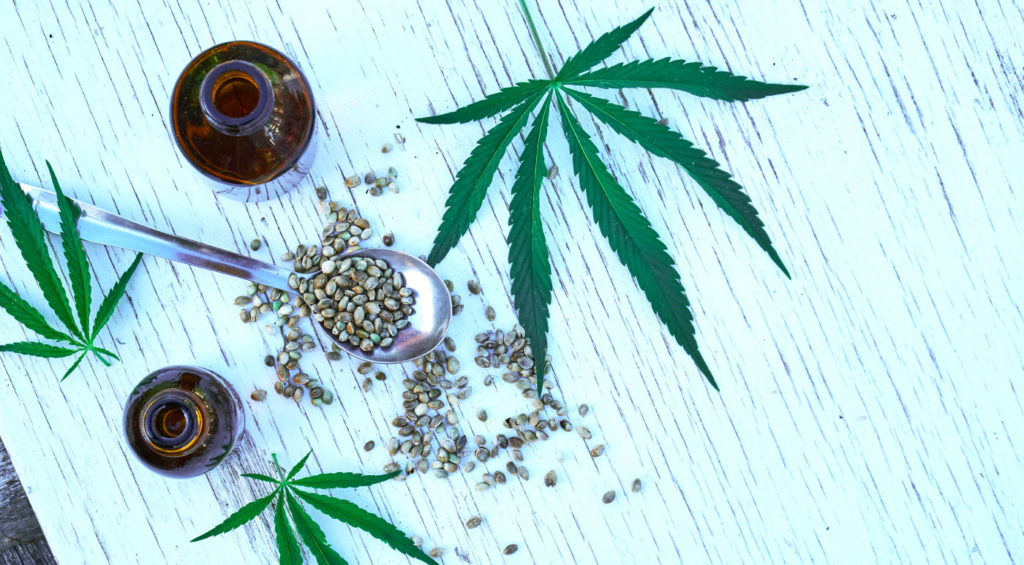
Fibromyalgia is a chronic disease that causes widespread pain. Like other chronic pain conditions, fibromyalgia does more than cause pain—it can alter moods, affect memory, and reduce the quality of life.
Since the causes of this condition aren’t fully understood, current treatment options do not always resolve all the symptoms.
Researchers continue to explore alternative therapies to alleviate the pain and co-occurring symptoms of fibromyalgia. Both researchers and those suffering from fibromyalgia pain are turning to alternative therapies, including using CBD for fibromyalgia symptoms.
Table of Contents
- CBD for Fibromyalgia: Just the Facts
- Understanding Fibromyalgia
- CBD Explained
- CBD for Fibromyalgia
- What the Research Says
- A Summary of What the Research Says
- Final Thoughts on CBD for Fibromyalgia
CBD for Fibromyalgia: Just the Facts
Fibromyalgia is a chronic disease that causes widespread pain, as well as other symptoms such as depression, anxiety, insomnia, and more. There is not a full understanding of the causes of fibromyalgia, and current treatments for this condition often do not resolve the symptoms completely.
Research on the topic of using CBD for fibromyalgia is just beginning, but it is promising. Almost all the studies conducted with participants who are living with fibromyalgia have used CBD combined with THC. The combination of CBD and THC has been shown to reduce pain, anxiety, depression, and insomnia symptoms in fibromyalgia patients. Further research should be conducted to investigate if CBD without THC can result in similar symptom improvement.
Understanding Fibromyalgia

In addition to widespread pain, fibromyalgia patients often experience various other symptoms. Every person with fibromyalgia has a different experience with the condition. In many cases, people have symptoms affecting their energy levels, memory, mood, and sleep.
Common Symptoms of Fibromyalgia
- Chronic widespread pain: muscle soreness, joint pain
- Energy and sleep changes: fatigue, insomnia
- Memory issues: brain fog, memory loss
- Mood changes: anxiety, depression
- Digestive problems: irritable bowel syndrome, nausea
- Bladder issues
- Headaches and migraines
- Menstrual cycle issues
What Causes Fibromyalgia?
This condition is not entirely understood. Some believe that nerves and pain receptors in the body become oversensitive and cause a person to be more sensitive to pain. There is no blood test for fibromyalgia. Therefore, the doctors diagnose this condition based on a history of widespread pain that lasts more than three months.
Risk Factors of Fibromyalgia
It’s not fully understood why people develop fibromyalgia. However, it is more common in women. In some cases, the condition develops after an infection or some type of trauma. Some experts believe there is a genetic component that contributes to the formation of fibromyalgia.
Conventional Fibromyalgia Treatment
Currently, the treatments available for fibromyalgia aim at relieving pain. Common medications include anti-inflammatory drugs such as ibuprofen, SSRI antidepressants, and anti-seizure medications. These treatments are effective for pain management for some people, but they do not work for everyone. Medications used to treat fibromyalgia are known to cause side effects. Side effects of SSRI antidepressants include fatigue, dry mouth, digestive changes, headaches, and insomnia—which are many of the very symptoms of fibromyalgia itself!
Other Approaches to Addressing Fibromyalgia Issues
Since it is still unknown what causes fibromyalgia in the first place, healthcare providers also emphasize general health and wellness strategies for fibromyalgia patients. Strategies used for fibromyalgia patients include self-care techniques such as exercise, stress reduction, and a healthy diet.
In short, the treatment options available are limited and only somewhat effective. Furthermore, medications can cause unwanted side effects. As a result, many people with fibromyalgia seek out alternative therapies. For instance, many fibromyalgia patients turn to acupuncture, massage, yoga, and herbal therapies—including CBD.
CBD Explained

Cannabidiol, better known as CBD, is a component of the industrial hemp plant. While the hemp plant is in the same family as the marijuana plant, there are some major differences between these two types of cannabis sativa plants.
The marijuana plant contains dozens of cannabinoids, including CBD. However, what makes it different from the hemp plant is its high levels of tetrahydrocannabinol (THC). THC is the component responsible for feeling “high.”
The industrial hemp plant, on the other hand, contains minimal amounts of THC. Also, some CBD products undergo a purification process which removes any remaining traces of THC.
Is CBD Safe?
CBD products may cause mild side effects in some people. However, in general, they are safe products to use.
Mild side effects may come in the form of changes in appetite, fatigue, nausea, and dry mouth. In addition, CBD may interact with medications you are taking. Always follow the advice of your doctor—and do not make any changes to your healthcare regimen without your doctor’s supervision.
The Legal Status of CBD Products
When it comes to the legal status of CBD products, it depends on exactly what substance you refer to. Cannabis is federally classified as a class 1 substance—meaning there is not a recognized medical use for this drug. While the DEA classifies cannabis as a schedule 1 drug federally, cannabis is currently legal at the state level in 29 states for the treatment of specific medical conditions. This is what’s known as “medical marijuana.”
CBD products, which are made from the industrial cannabis plant, and which contain less than 0.3% THC content, are legal in all 50 states of the United States. CBD comes in many forms, giving people a choice regarding how they take CBD, should they decide to do so. Some of the ways CBD can be used is through vaping, ingesting as an edible, and even applying it topically with a CBD-infused lotion.
The Regulation of CBD Products
The Federal Food and Drug Administration (FDA) is an agency of the U.S. government that regulates drugs, supplements, foods, and more. Currently, the FDA does not regulate CBD products. The lack of FDA oversight results in concerns regarding regulating purity and the concentration of CBD that CBD products claim on their labels to the public.
The lack of consistent purity and concentrations calls for stricter regulation of CBD products. In the meantime, third-party testing can help with this issue as it assesses both CBD content as well as THC levels. When choosing CBD products, it’s always a good idea to go to a trusted resource to ensure you’re getting the best products on the market.
CBD for Fibromyalgia

The Endocannabinoid System
CBD affects the endocannabinoid system. This system is found in many parts of our brains as well as throughout our bodies. Research has identified its role in emotional health, pain levels, and controlling inflammation.
CBD interacts with this system through stimulating cannabinoid receptors, the most important of which are CB1 and CB2 receptors. When stimulated, CB1 and CB2 receptors are responsible in part for decreasing inflammation levels, pain, and anxiety.
Anandamide is a type of cannabinoid contained in CBD, which is responsible for activating the endocannabinoid system. CBD has been shown to decrease pain levels and anxiety in clinical studies.
Given that fibromyalgia patients tend to experience symptoms including pain and mood changes, CBD may be useful in helping to manage symptoms of this condition.
What the Research Says
Unfortunately, there have not been many studies conducted on the use of CBD for fibromyalgia in humans. While the theory of using CBD in the treatment of fibromyalgia seems plausible, only a few studies with a small number of participants using cannabis containing THC have been published. In short, there have not been studies conducted that looked at CBD specifically for fibromyalgia.
One study found that CBD had no significant effect on pain or pressure, compared to results experienced by participants who were given a placebo. However, the participants who received the combination of THC and CBD did experience significant reductions in their pain levels.
Another study surveyed fibromyalgia Facebook groups and found that individuals who used cannabis (containing both THC and CBD) had significant self-reported improvements in pain, depression, anxiety, and sleep. CBD without THC was not reported in this study.
It remains to be seen if many of the beneficial effects of CBD with THC on fibromyalgia symptoms are the same for CBD without THC.
While the research is promising for the use of CBD for fibromyalgia, further research needs to be conducted.
A Summary of What the Research Says
Research on using CBD for fibromyalgia is still in the early stages. There have not yet been studies conducted that looked specifically at CBD for fibromyalgia.
Research studies have, however, been conducted studying the combination of CBD and THC for symptoms of fibromyalgia, and participants in these studied showed a significant reduction in pain, depression, sleep, and anxiety.
While the research is promising for the use of CBD for fibromyalgia, further research needs to be conducted to determine whether using CBD for fibromyalgia on its own, without THC, would garner similar results.
Final Thoughts on CBD for Fibromyalgia
To date, there have not been many studies on CBD for fibromyalgia. However, fibromyalgia patients report that cannabis products that contain both CBD and THC have helped them with their symptoms.
We still do not completely understand fibromyalgia as a disease. Therefore, more research on the underlying cause of fibromyalgia, as well as novel approaches to treatment of its symptoms and progression, is needed.
If you have fibromyalgia and are interested in trying CBD products, always consult your doctor before making any changes to your healthcare routine.
